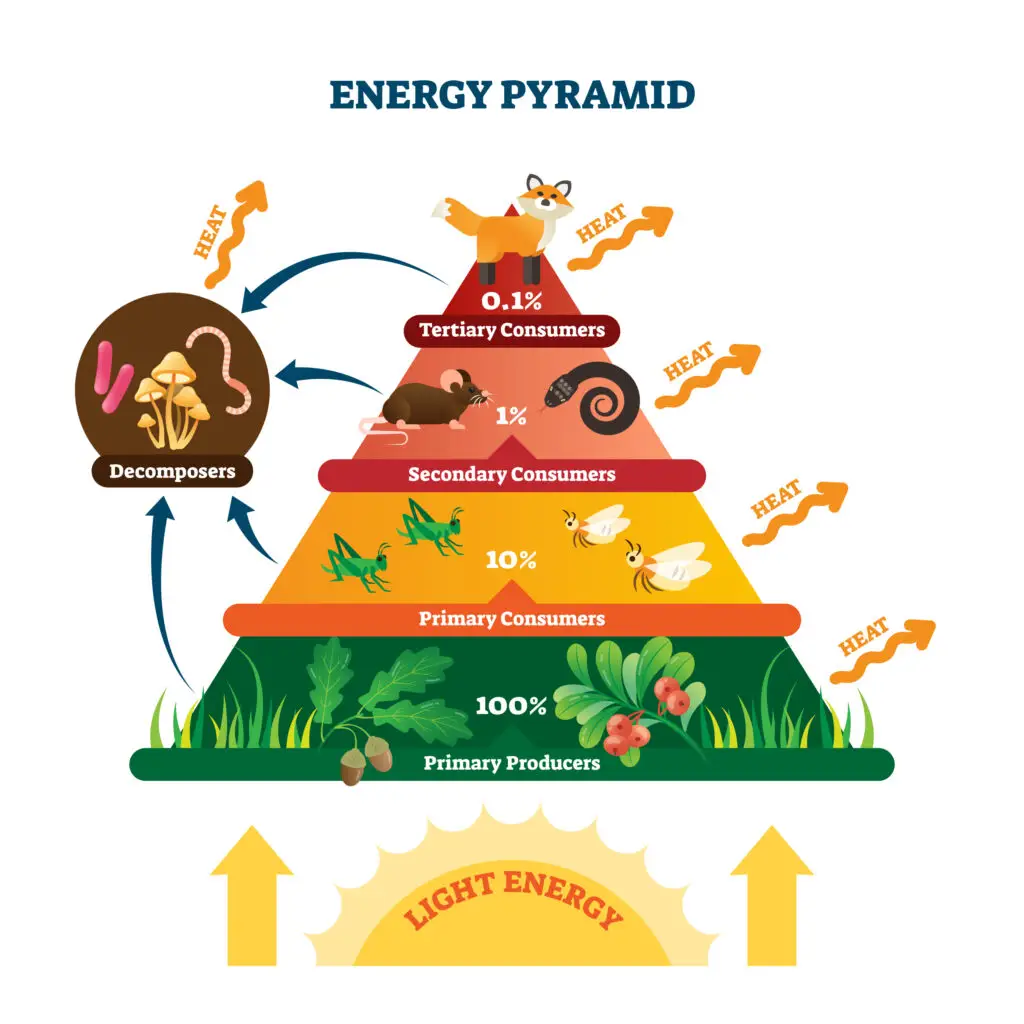Decomposer
What is a Decomposer?
A decomposer is a vital component of ecosystems, responsible for breaking down dead organic matter, such as plants, animals, and waste, into simpler substances. Organisms like bacteria, fungi, and certain types of insects and worms serve as decomposers, playing an essential role in nutrient cycling and maintaining ecosystem health.
Decomposition Process
Decomposers play a key role in breaking down dead plants and animals, turning them into nutrients that go back into the soil. The decomposition process begins when decomposers, like bacteria and fungi, find a dead organism. They release special chemicals, called enzymes, that help break down complex materials, like proteins and fats, in the dead matter.
As these materials break down, decomposers absorb the nutrients they need to grow and survive. Meanwhile, the rest of the nutrients get released into the soil, which makes the soil richer and better for plants to grow. Small animals, like worms and insects, also help by breaking the dead material into smaller pieces, making it easier for bacteria and fungi to do their job.
This process of decomposition helps recycle nutrients back into the ecosystem. Without decomposers, dead plants and animals would pile up, and the soil wouldn’t have the nutrients that plants need to grow.
Decomposers vs. Detritivores
Decomposers include bacteria and fungi. They break down dead matter by releasing chemicals, called enzymes, that turn complex materials into simpler nutrients. These nutrients go back into the soil, helping plants grow. Decomposers absorb some of these nutrients to survive, but they leave most of the nutrients in the soil.
Detritivores, like worms, beetles, and some insects, are a bit different. Instead of breaking down matter with chemicals, they actually eat the dead material. For example, earthworms eat dead leaves and turn them into smaller pieces as they digest them. The remains they leave behind are rich in nutrients, which go back into the soil.
So, decomposers break down matter with enzymes, while detritivores eat the dead material. Both are important for recycling nutrients and keeping ecosystems healthy.
